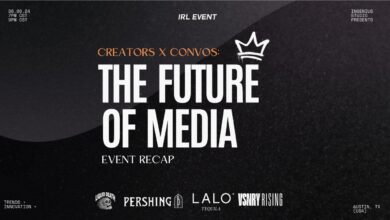Microsoft’s Outlook from 2020; The Media Company of the Future?

A headline caught my attention the other week and as someone long a fan of the strategic moves Microsoft makes somewhat behind the spotlight, the news fired up an interest in sharing some thoughts about the company for all of our friends in Media.
“This could be Microsoft’s most important product in 2020. If it works“
That, from CNET’s Alfred Ng, should get anyone’s attention but it’s the climate of the U.S. economy, society, and pending election that makes the headline even more meaningful.
2020 is an election year in the United States and yes, that [too] is where Microsoft is working.
ElectionGuard is very early stage work by Microsoft to explore voting machines not that can’t be hacked but rather makes hacking pointless.
That notion caught my attention as in media, we’re constantly exploring the same notions particularly related to national security, privacy, and data control – in social media, online, how might we protect ourselves from inevitabilities that come along with being online?
“If you can’t stop the hack, the second-best thing is to know that you’ve been hacked,” R.C. Carter, Microsoft Director of Strategic Projects. “This is exactly what this does.”
Really Making the Most of Online Media
Speaking of being online, I can’t help but watch with excitement a how it’s not necessarily Apple, Amazon, Google, nor Facebook, that’s really planning for the future; it’s Microsoft that is so integrated with the internet that we might have them to thank for most innovation.
HoloLens is just over a year into the half billion dollar AR contract that Microsoft put in place with the Department of Defense. Little is it known to most but our friends in Redmond Washington owns the dominant and respected social network that is not only driving careers but taking a serious look at the future of journalism. Microsoft is one of the 3 dominant gaming platforms and they own GitHub, meaning they’re right at the epicenter of development. They’re investing heavily in bringing their Office suite back to its place on top, and their Surface work suggests they’re looking to the next iteration of the computing experience.
Still not sure?
The future of gaming has never been more inspiring. Creativity in games is flourishing. New services empower you to discover more games—and bring you closer to the games and creators and streamers you love. The cloud creates a massive opportunity to stream console-quality games and play with the people you want, wherever you want. And for many of us, nothing is more inspiring than the dawn of a new console generation.
– Phil Spencer, Head of Xbox
Just a couple months ago, Microsoft released Sketch2Code, an AI that can only be described as turning a drawing into the code necessary to present what you draw as a website or app.

Imagine that a moment… you’re going to draw your next website.
As of February 2020, technology market analyst Canalys reports among the cloud providers, which might be where my point about such companies and the internet is most meaningful, notes AWS with 32.4% of the market, Microsoft’s Azure at 17.6%, Google Cloud at 6%, and Alibaba Cloud close behind at 5.4%, with many others rounding out the market.
2020 to the Future
From that breadth of innovation, ideation, and inspiration in Microsoft’s varied interests, it was a paper published by Microsoft Advertising that really got our attention in MediaTech Ventures.
2020 Vision : Why trend forecasting around media planning involves more than simply understanding technology
Researched and written by Aya Kikimova, Strategic Sales Microsoft Advertising, and Geoffrey Colon, Head of Microsoft Advertising Brand Studio, 2020 Vision: Trends to define the next decade explores next 10 years. In the report, Microsoft has defined five categories of influence that sound an awful lot like our own vision and values for the economy and capital investment in media: Culture, Marketing, Media, Technology and Economics.
From the past decade, they noted, in brief:
- The democratization of media and communications has led to the liberation of people (literally) in some parts of the world and customers in others.
- Marketers now know that engagement is the most important success metric.
- If you had a voice and a blog with high search engine rankings and could imagine a new expression of media, you could make it happen.
- Powered by artificial intelligence — the technology buzzword of the decade — IAs such as Alexa, Echo, Google Home and others began doing our bidding and answering our questions.
- You couldn’t go wrong investing in tech solutions to power your business.
With that in mind, what’s in store for our future?
During the next decade, consumers will increasingly subscribe to the ideals captured in work such as Umair Haque‘s Betterness Manifesto. “Real change doesn’t begin with governments, presidents, or prime ministers. It begins with each of us. We’re the freest people in history. It’s time to use it like we meant it.”
The challenge for us all? Tracking and targeting people online will be harder for everyone. Colon and Kikimova note that ” Some brands may turn to using highly interactive ads that rely less on engagement in the form of a like or clickthrough and more on the back-and-forth banter between the ad experience and the consumer.”
And because of that, as well as it being possible, traditional media will merge even more thanks to the internet. If you think a podcast is innovative in what you’re doing, imagine a podcast and app in which your audience can discuss with you live what’s on the show, search to learn more about topics, and then hear from brands and providers on streaming media at home.
Microsoft’s paper posits that because of all that, the brands of the future will be the brands that literally just provide you the solution; no ad needed, when you search for a better way to manage your finances, the platform that simply provides it will both differentiate themselves and establish the competitive advantage that we all prefer.
“The process of understanding the buyer’s journey and marketing performance based on that journey can be measured by what we call the Customer Experience Quotient. This metric is becoming more important as the rise of AI and intelligent assistants impacts ad delivery systems. Top choices, as determined by AI-powered search algorithms, will become the default consumer favorites and allow those who develop for AI to win entire digital marketplaces.”
2020 Vision: Trends to define the next decade
The rise of the “unicorn” that we’ve witnessed gain notoriety for the past decade or so will likely cede to a new way: the zebras.
“Zebras fix what unicorns break by feeding on them and getting stronger. Unicorns have a weakness: they’re all about building fast and realizing big returns. But they literally burn out into non-existence because they’re not built to last. Why? Because unicorns weren’t real in the first place.”
We’re keeping an eye on Microsoft and I thought it prudent to encourage that you do as well. Whether the acquisitions, the breadth of their work, their ideas and innovations, what it means to be a zebra, or their outlook from 2020, this is a brand that seems to be leading us all a bit in betterness.







I *really* like VS Code
And Windows, Skype and Minecraft
They own Minecraft?
And duh, I forgot Teams giving Slack a run for its money
https://money.cnn.com/2014/09/15/technology/minecraft-microsoft/ from 2014
Is there an accepted standard for engagement similar to the now unusable Unique Monthly Visitors?
What a wonderful question Loren Taylor; I’d admittedly not thought much about it but Unique Visitors, I’d argue, is and always has been a poor metric – because it doesn’t really tell us anything.
UMV has always been reasonably poorly tracked. Dependent on cookies, that don’t work across device, etc. Plus, for most, unique visitors are people completely irrelevant to the business so what does it matter if you merely have a ton of views?
Well, it does, matter if you have a ton of views. Arguably, Pageviews is a better metric WHEN you look at it critically – compared to others times, based on sources, etc. With pageviews, I can more meaningful see if Google is working, social media, word of mouth, etc.
Point being in that that the challenge of all of such metrics is that they have to be evaluated. Percentages matter SO much more than raw numbers… and most businesses (and even marketers) have no idea what they’re doing in that regard.
I’m reminded of SEO as an example of how poor some are. Rank (as an example) is an irrelevant metric. Yet in SEO, many businesses and tons of people hawking search, promise that coveted first position. It’s b****** Rank is meaningless. % changes related to Search; that’s meaningful.
Other metrics that should be more standard than Uniques?
Time on (but only when evaluated relatively! “10 Minutes” alone doesn’t mean anything).
Conversion rates (not just to buy but all conversion metrics: sign up, follow, etc.)
Bounce and Exit rates (again important though as relative measures – how many people are abandoning from here? A raw number doesn’t mean anything good or bad; we need to know better/worse than otherwise)
New vs Returning is more valuable than Uniques, I think. It’s a ratio so it’s a more comprehensive look at the audience as merely more of the same or new people.
Great question!
Great Q, we think it depends on the objective.
Publishers may track page views because it relates to their ad spend. Brands may track conversations or bounce rates.
The beauty of OKRs is that they allow the orgs to focus on what’s most important to the success of the biz!
I’m very much looking forward to the launch of Microsoft Viva which hopefully will be the first really useful collaboration tool. Teams is okay but rather barebones, it’s not really made for remote work in the creative field.
Same Benjamin Kratsch. Would love to know what partnerships look like for the platform, cc Harlyn Pacheco Micajah Alonso Dudley
https://www.microsoft.com/en-us/microsoft-viva